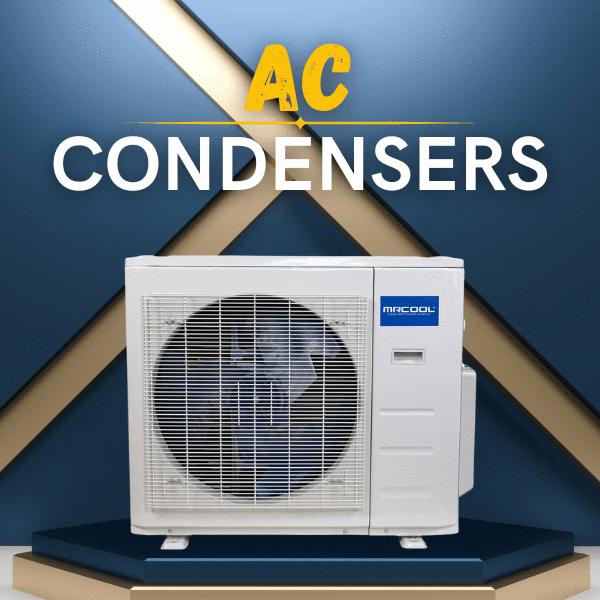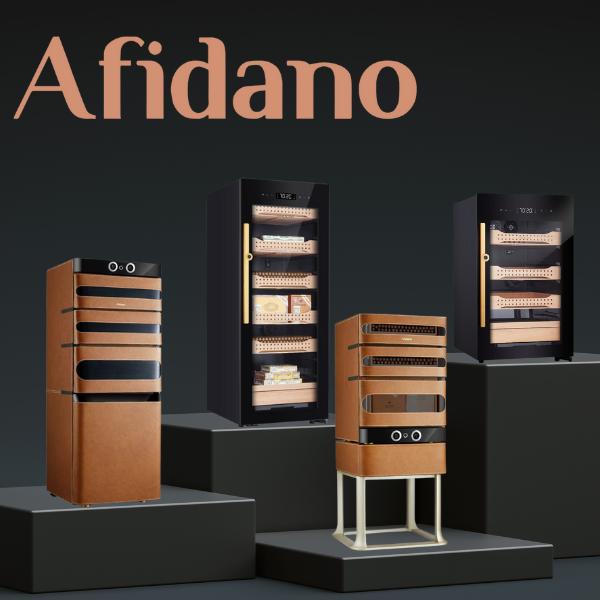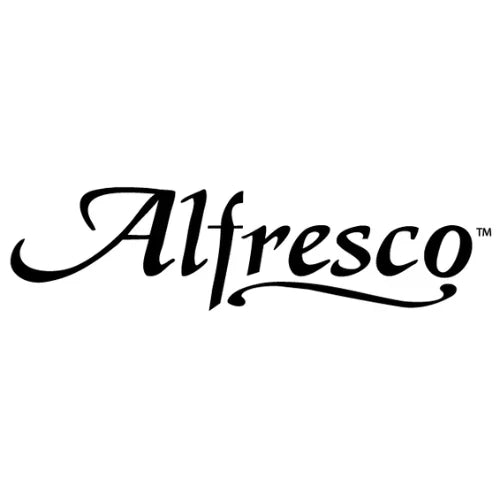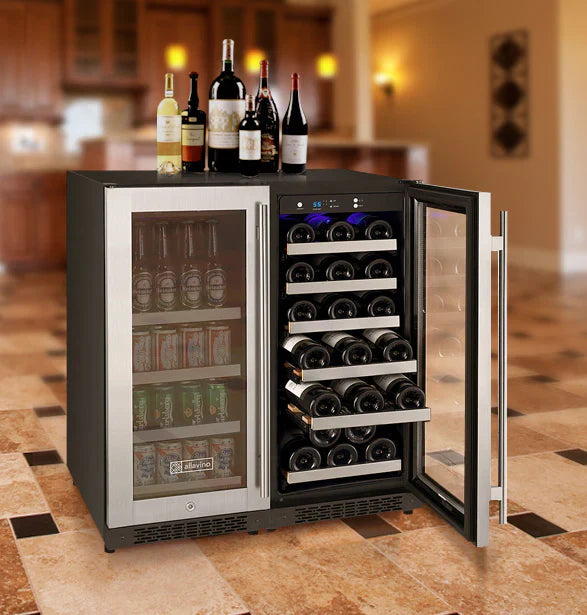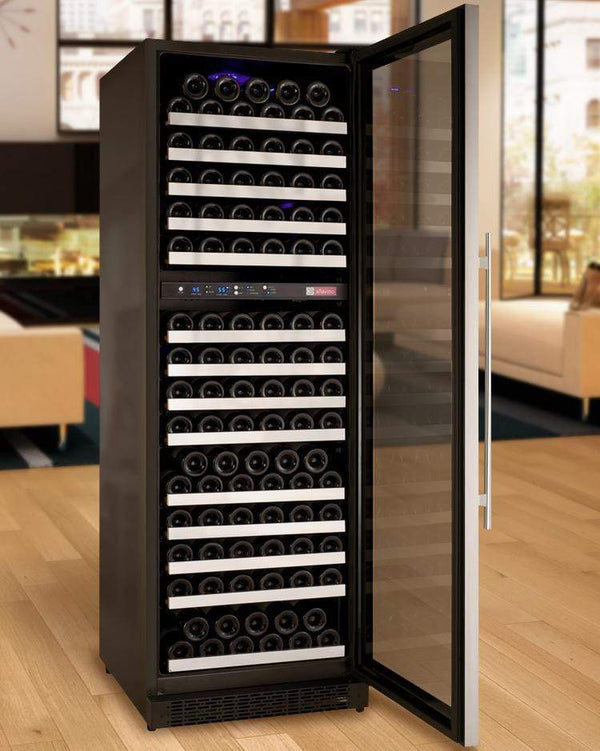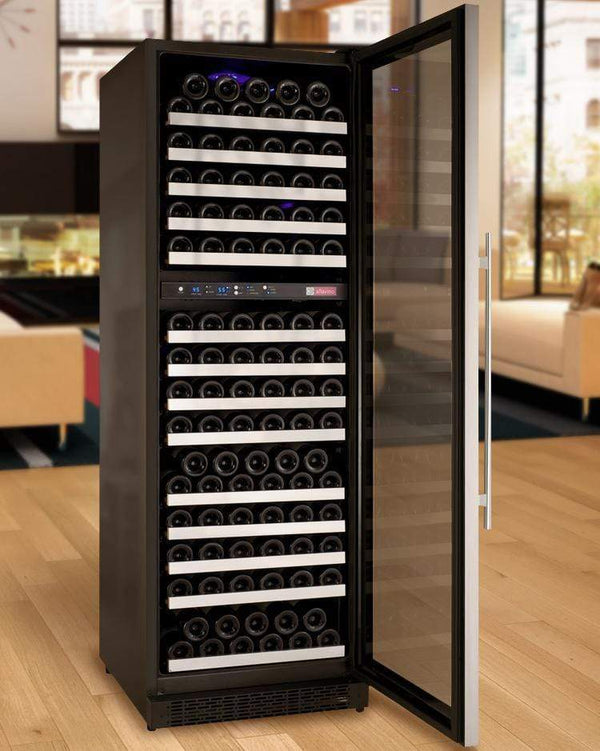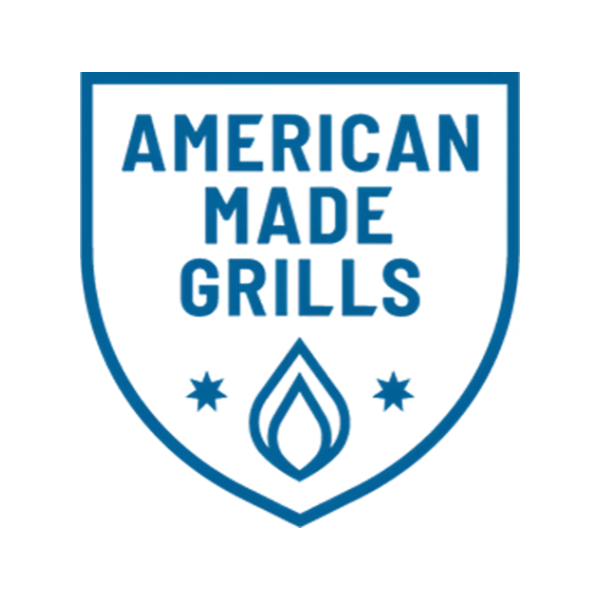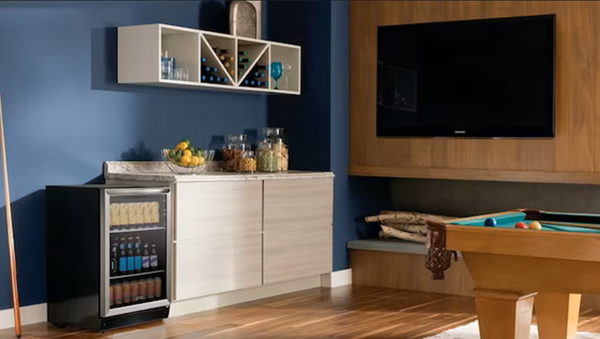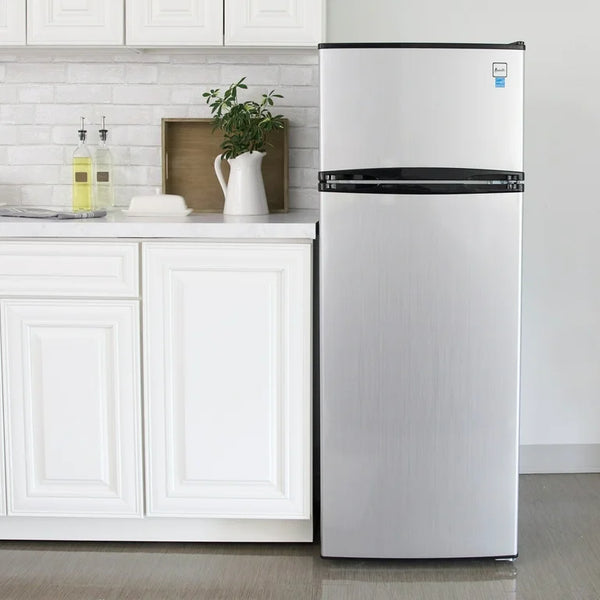Best Wine Fridges: Top Picks & Expert Buying Guide for 2025
2025 Wine Fridge Buying Guide: Top Models and Key Features
By Jim Hopper, Wine Cooling Expert
For wine enthusiasts and collectors, a dependable wine fridge is essential for preserving and enjoying your favorite bottles. With new models emerging in 2025, what qualities should you prioritize to ensure optimal wine storage? In this updated guide, we highlight top-rated wine coolers, discuss key features to consider, and provide expert recommendations to help you make an informed purchase—whether you’re a casual drinker or a dedicated collector.
New to wine fridges or want a comprehensive overview?
Start with our Wine Fridge & Beverage Cooler Buying Guide for foundational tips before exploring our top picks below.
Short Summary
- Discover the best wine fridges for 2025 from trusted brands like Smith & Hanks, Allavino, Summit, Whynter, Cavavin, U-Line, and more.
- Learn the critical factors to consider before buying, including capacity, temperature control, installation type, and key features.
- Explore expert storage tips, maintenance advice, and answers to common wine fridge questions.
Our Expertise & Editorial Process
At Wine Coolers Empire, our recommendations are grounded in years of experience and a passion for wine preservation. Our lead reviewer, Jim Hopper, is a recognized wine-cooling expert with over a decade in the industry, collaborating with sommeliers, wine retailers, and appliance engineers.
How We Select and Review Products:
Our process blends hands-on product evaluations, technical research, and feedback from both industry professionals and everyday users. We analyze thousands of customer reviews, consult with wine experts, and monitor trends in wine storage technology. Our guides are updated regularly to reflect new releases and customer insights.
For a beginner-friendly overview, visit Wine Coolers 101.
Who Should Buy a Wine Fridge?

Not everyone needs a dedicated wine fridge. Consider investing in one if:
- You buy more wine than you can drink in a month and want to store bottles for longer periods.
- You regularly purchase bottles over $30 or plan to age wine to improve its complexity.
- You want to protect your collection from heat, light, and vibration, which can degrade wine quality.
- You’re looking for a convenient way to store both reds and whites at their ideal serving temperatures.
For short-term storage (less than a month), a regular refrigerator or a cool, dark basement may suffice. However, for serious collectors or those with sensitive or natural wines, a wine fridge offers superior protection and peace of mind.
For more on storage alternatives, see our Wine Cooler vs. Wine Cellar Comparison.
Top Wine Coolers and Wine Fridges for 2025
Here are our standout choices for 2025, each carefully selected for performance, reliability, and unique features:
-
Smith & Hanks 166 Bottle Dual Zone Smoked Black Glass Wine Fridge RW428DRG:
Large capacity, dual temperature zones, and adjustable shelves make this a top pick for serious collectors.
See product details -
Allavino Vite II Tru-Vino 115 Bottle Black Right Hinge Wine Fridge (YHWR115-1BR20):
Sophisticated design and precise temperature control for medium-sized collections.
View Allavino Vite II Tru-Vino -
Summit 29 Bottle 18" Built-In Trimmed Glass Door Wine Fridge CL18WC:
Compact and built-in friendly, ideal for kitchens or bars.
Explore Summit CL18WC -
Whynter 34 Bottle Freestanding Stainless Steel Refrigerator (FWC-341TS):
Great for smaller spaces and everyday use.
Check Whynter 34 Bottle Fridge -
EuroCave La Première S:
For collectors seeking the ultimate in wine protection.
For more options, browse our full Wine Fridges Collection.
Understanding Wine Storage: Why Conditions Matter

Proper wine storage is crucial to preserve flavor, aroma, and value. Wine is sensitive to several environmental factors:
- Temperature: The ideal storage range is 50°F to 60°F. Temperatures above 70°F can “cook” wine, causing flat or off flavors, while fluctuations can lead to cork expansion and oxidation.
- Humidity: 50–80% humidity is best. Too little dries out corks (allowing air in), while too much can cause mold and label damage.
- Light: UV rays degrade wine, causing dull or “cooked” flavors. Solid or UV-protected glass doors help shield your bottles.
- Vibration: Excessive movement can disturb sediment and accelerate aging.
For a detailed breakdown, visit our Ultimate Guide to Proper Wine Storage.
Key Features to Consider When Buying a Wine Fridge
1. Capacity and Storage Flexibility
-
Assess your current collection and future needs. Experts recommend buying a fridge with double the capacity you think you need, as bottles often take up more space than expected—especially with non-standard shapes.
-
Adjustable shelves help accommodate various bottle types.
Need more space? See our Large Wine Coolers.
2. Temperature Control: Single vs. Dual Zone
-
Single-zone fridges keep all bottles at one temperature—ideal for aging or storing one type of wine.
-
Dual-zone fridges offer separate compartments for reds and whites, allowing you to store each at its optimal serving temperature.
Browse Dual Zone Wine Coolers
3. Installation Type
-
Freestanding models offer placement flexibility but require ventilation space.
Shop Freestanding Wine Coolers -
Built-in/under-counter units are designed for seamless integration but may have stricter airflow requirements.
See Built-In Wine Coolers -
Countertop models are compact and ideal for small spaces.
Explore Small Wine Coolers
Compare installation types in our Beverage Fridges: Built-In or Freestanding? guide.
4. Noise Levels
- Compressor-based fridges are powerful but can be noisier. Thermoelectric models are quieter but may not perform as well in warm environments.
5. Shelving Design
- Wooden shelves are gentle on labels, absorb vibrations, and provide an upscale look.
- Adjustable or sliding shelves make it easier to access bottles and fit different sizes.
6. Door Type and UV Protection
- Solid doors offer the best protection from light and temperature swings.
- Tempered, UV-coated glass doors allow you to display your collection while protecting it.
7. Warranty and Customer Support
- A strong warranty (at least one year, ideally longer on sealed systems) and responsive customer service are key for peace of mind.
For more buying tips, see How to Choose the Best Wine Cooler.
Smart Features & Innovations to Look For

- Wi-Fi/App Control: Monitor and adjust temperatures remotely (offered by select Allavino and U-Line models).
- Energy Efficiency: Look for ENERGY STAR ratings or eco-friendly compressors.
- Custom Panel Options: Some luxury brands allow you to match your fridge to kitchen cabinetry.
- Advanced Humidity Control: Built-in hygrometers and automatic humidity regulation in higher-end units.
Expert Recommendations
Brands like Smith & Hanks and Allavino are consistently praised for their reliability, advanced cooling technology, and sleek designs. When evaluating your options, consider not just features and price, but also warranty coverage and after-sales support.
Comparing Wine Fridges: What Sets Them Apart?
When comparing models, pay attention to:
- Temperature range
- Internal layout and shelving
- Durability and user reviews
- Noise and vibration
- Extra features (locks, humidity control, digital controls)
Important note:
Actual capacity is often less than the advertised number, especially if your collection includes larger or non-standard bottles. Plan for extra space to avoid overcrowding.
Still deciding? Learn about the differences between a wine cooler, beverage cooler, and refrigerator.
Broadened Comparison Table: Wine Fridge Brands at a Glance
| Brand | Notable Product | Capacity Range | Key Features | Price Range | Warranty | Customer Support |
|---|---|---|---|---|---|---|
| Smith & Hanks | RW428DRG | 34–166 bottles | Dual zone, energy efficient | $$$ | 1–3 years | Excellent |
| Allavino | Vite II Tru-Vino | 18–172 bottles | Tru-Vino temp control, advanced shelving | $$$$ | 1–2 years | Very good |
| Summit | CL18WC | 18–50 bottles | Built-in options, compact | $$ | 1 year | Good |
| Whynter | FWC-341TS | 34 bottles | Freestanding, digital temperature control | $$ | 1 year | Good |
| EuroCave | La Première S | 98 bottles | Adjustable shelves, solid insulated door | $$$$$ | 5 years (sealed) | Excellent |
| Danby | DWC93BLSDB | 36 bottles | Budget-friendly, basic features | $ | 1 year | Good |
| Avanti | WCR496DS | 49 bottles | Dual zone, entry-level | $ | 1 year | Fair |
Flaws & Limitations: What to Watch Out For
No wine fridge is perfect. Here are some common limitations to keep in mind:
- Capacity shortfalls (especially with large/irregular bottles)
- Noise from compressor models
- Installation constraints (ventilation, built-in requirements)
- Temperature fluctuations in lower-end models
- Cost of high-end fridges
Alternatives to Wine Fridges
A wine fridge isn’t always necessary. If you have a cool, stable basement, it can serve as a makeshift cellar. For short-term storage, even a regular refrigerator works, though it’s not ideal for aging or delicate wines.
For a full breakdown of options, see our Wine Cooler vs. Wine Cellar Comparison.
Used Wine Fridges & Off-Site Storage: Practical Tips
If a new wine fridge is out of budget, consider these tips:
- Look for reputable brands and check age, maintenance history, and warranty status.
- Test temperature controls and inspect for signs of wear.
- Research local wine storage facilities for security, temperature/humidity controls, and accessibility.
Wine Storage and Maintenance Tips

- Store reds at 55°F–65°F and whites at 45°F–55°F.
- Keep bottles on their sides (for corks), in a dark, vibration-free environment.
- Clean the interior with a mild baking soda solution and soft cloth.
- Vacuum dust from condenser coils and check door seals.
- Follow manufacturer recommendations for filter changes and maintenance.
For troubleshooting and more, see our Wine Fridge Maintenance Guide.
Summary

Choosing the perfect wine cooler for your collection requires careful consideration of capacity, temperature control, installation type, and special features. By understanding your needs, comparing top models, and following expert advice, you’ll find a wine fridge that keeps your bottles in peak condition for years to come.
Shop Wine Fridges with Confidence
Ready to find your ideal wine fridge? Shop at Wine Coolers Empire for the best selection, expert support, and unbeatable offers.
Browse our Wine Fridges Collection or contact us at support@winecoolersempire.com or +1-888-407-7770. Your satisfaction is our priority!
📚 Frequently Asked Questions (FAQs)
Are wine fridges worth it?
What is the lifespan of a wine fridge?
Why are wine fridges so expensive?
Are all wine fridges noisy?
Where is the best place to put a wine fridge?
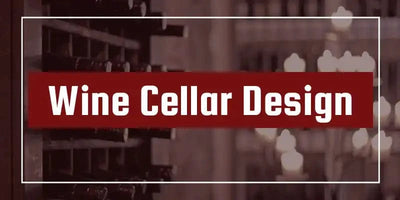
Designing or Upgrading a Wine Cellar?
We got you! Here at Wine Coolers Empire, we will guide you in building your dream wine cellar.

